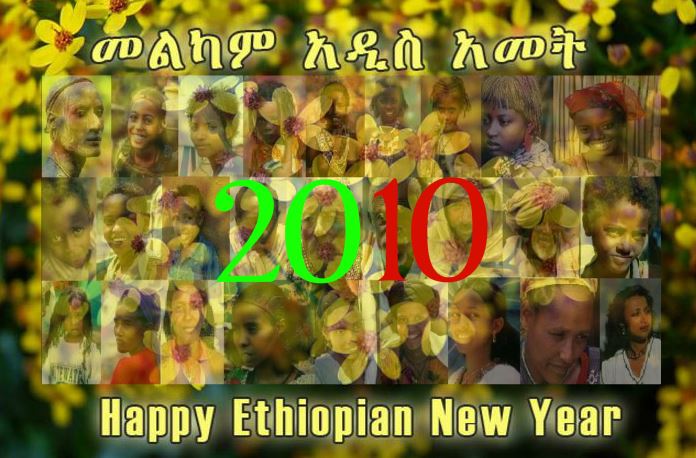REFLECTIONS ON ETHIOPIA’S JUNE 21, 2021 GENERAL ELECTION (PART II)

Special Guest Commentary
By Blen Mamo Diriba*
Election is the cornerstone of democracy, a requisite political process in the effort to ensure accountable governance and political stability. Through elections, office holders obtain their political legitimacy and democratic mandate to govern while being held accountable for their acts and omissions in office. Elections enable democratic governments to translate the choice and preferences of citizens/voters into policy, laws and regulations. In this regard, Abiy Ahmed’s administration has decided to move forward with the election which will be held in a few days’ time. Similarly, political parties such as EZEMA, NAMA, ENAT, HIBER and some forty plus others have joined the government in insisting that elections be held some with and others without reservations.
In this commentary, I aim to analyse why the June 21, 2021, election is a major milestone in Ethiopia’s political development and why the Ethiopian people should value it as an epochal juncture in the sociopolitical and economic future of Ethiopia. I also aim to explore the rationale behind Abiy Ahmed’s government’s determination to hold elections despite intense international pressure and domestic attempts to thwart and to disrupt it.
The June 21 election as a decisive step to democratization and political stability
Abiy Ahmed has taken the enormous task of transitioning a country trapped in half a century of military dictatorship and one-man, one-party rule to multiparty democracy. When Abiy came to power in April 2018, the country was in political turmoil ravaged by widespread violent political unrest which threatened imminent state collapse. However, Abiy Ahmed’s administration has not only managed to survive, but also strived to revive the nation through various socio-political and economic reforms.
Among the major reforms include restructuring and overhaul of the national election board and revision of the election law, strengthening of the justice sector and critical security sector reforms which today have made a vital contribution to the anticipated success of the upcoming election. These reforms may not necessarily guarantee the election will experience no obstacles, but they will surely guarantee Ethiopia will stay the long course of democratic electoral politics.
In a broader perspective, this election affirms the fundamental principle of periodic elections to ensure peaceful political change. In turn, periodic elections minimize the impulse for armed rebellions and violent mass mobilisations since the expectation is the ruling party can be removed peacefully in an election. On the other hand, an election victory affords the winning party legitimacy and confidence to take political measures as an expression of a popular mandate and transition Ethiopia into a more inclusive system of democratic governance. One of the major advantages for the winning party is that an election victory enables it to create the environment for broad constitutional dialogue. Such dialogue could be critical in addressing many of the major issues that have fueled ethno-religious tensions in Ethiopian over the past several decades, including controversies related to the organization of regional security forces, ethnic federalism, regional autonomy, interregional relations and border disputes, etc. Moreover, it will enable the government to restructure federal relations by defining the scope of federal authority which has been unbridled during the TPLF regime. By redefining the division of power between the national and regional governments, the pressure from separatists elements (e.g., TPLF, OLF and other irredentist forces) could be significantly diminished.
This election and its outcome must be held in high regard by both Ethiopians and the international community. It is Ethiopia’s first genuine democratic experiment. It must be assessed against the backdrop of conflict, strife and instability Ethiopia has undergone over the past one-half century. Ethiopia is making a clear choice and taking a decisive step to avoid repeating past mistakes and chart a new course of competitive electoral democratic politics.
A path to legitimacy and accountability
The EPRDF which ruled the country for over a quarter of a century incredibly claimed a 100 percent victory in the 2015 general election and 99.6 percent in 2010. Abiy Ahmed was elected as head of the EPRDF after the PM Hailemariam Desalegn’s unprecedented resignation. Hailemariam unexpectedly resigned following persistent and widespread anti-government protests in 2018.
Abiy Ahmed’s critics and opponents argue he is the “Unelected Prime Minister” implying he lacks legitimacy. The dissolution of EPRDF and formation of the Prosperity Party under Abiy Ahmed’s leadership while he led the EPRDF resulted in added controversy regarding his role as prime minister. This controversy arose from the fact that Abiy gained his position within the political structure of EPRDF, and not the “Prosperity” party which is different in its name and political manifesto. The criticism about “unelected prime minster” is a manifestation of a lack of clear understanding of Ethiopia’s political system in which the ruling party leadership elects its party chairperson who by default becomes prime minister. Thus, there is little basis to question Abiy Ahmed’s election to replace Hailemariam as prime minster under the current constitutional process and party rules.
The upcoming election may help Ethiopians and the international community obtain clarity as Abiy or whoever wins the election will have legitimate power and mandate to discharge the duties of the office of the prime minister. It will further enable the winning party to gain public confidence and wield power to reinforce the responsiveness and accountability of the political community to the larger public. It is manifest government accountability and responsiveness is diminished greatly where there is no meaningful electoral process. Thus, the June 21 election will have a significant impact on the structure and accountability of governance in Ethiopia.
A path to self-actualisation and national integration/unity
Regardless of the numerous other sociopolitical needs and economic demands, the participation of Ethiopians in the upcoming election will undoubtedly reinforce their self-esteem and pride as citizens. It provides them the opportunity to have their say through their own autonomous and independent political expression, thereby enhancing their sense of belongingness in the national political discourse. Even by objecting to vote or isolating one’s party from competing in the election, citizens satisfy their need to express their feelings towards/against the existing regime, in the electoral process.
Additionally, the upcoming election will also interlink and solidify their common bonds not only as citizens and voters but also as members of one Ethiopian nation. This strengthens the Ethiopian polity and fosters socio-political integration among the people. It might also be a step forward to revive Ethiopian nationalism and dismantle ethnic politics and sectarianism that are fanned internationally and domestically by the merchants of crisis for their own political benefits.
A path to macroeconomic stability and inclusive growth
Ethiopia is a rich with many natural resources. But it has remained impoverished as a consequence of decades-long corruption and abuse of power. The inefficiency, negligence, mismanagement and corruption of the TPLF-led-EPRDF is estimated to have cost losses to the country exceeding thirty billion dollars. That regime has impoverished the country while displaying cosmetic infrastructural development projects for the approval of the Western donors and financial institutions.
Abiy Ahmed inherited an economy that was in peril and a nation that was on the brink of complete bankruptcy. Even though he managed to sustain the economy through fast cash injections and subsidies provided by friendly nations and governments such as the UAE, Ethiopia’s economy continues to face serious challenges. The TPLF’s nearly absolute dominance of the economy, its deep-rooted corruption, illicit capital flight and money laundering, currency forging, etc., combined to cause serious economic problems including inflation. This has been done intentionally to cause public outrage and political unrest against Abiy Ahmed’s administration which is trapped between the past and the future, i.e., economic crisis and economic reform, while striving to overcome the imminent economic challenges and ensure macroeconomic stability.
Abiy’s administration has introduced many vital measures such as increased budget transparency, economic and investment policy reforms, inclusive strategies to nurture a strong middle class and so forth, thereby slowly neutralizing the precipitated economic crisis aimed at triggering serious economic shocks that could have rapidly ruptured the government and the state. Thus, the upcoming election increases Ethiopia’s chance to head towards political stability that in return helps ensure economic stability, prosperity and inclusive growth. Such possibility of growth and stability inevitably leads to a commensurate increase in socio-political and economic freedoms that rewards politicians with powerful feedback from their voters, thereby stimulating the process of democratisation. It will also significantly decrease the risk of sliding back into the economic chaos of the past and reversion to autocracy.
Nonetheless, the current sanctimonious position and action of the US on the Ethiopian government might unfortunately pose a serious challenge if they push any further. The Western world should be aware that any attempt to block Ethiopia’s election thereby blocking the current path to prosperity and democratisation will only create a breeding ground for strongmen. Thus, the West should play a constructive role in supporting the election and the overall socio-economic and political reforms in Ethiopia.
A chance to promote regional stability
Ethiopia has always been a central player in the Horn of Africa and played many critical leadership roles in post-independence Africa. Ethiopia was the only African nation represented in the League of Nations (1920) and is an original signatory of the U.N. Charter (1945). Ethiopia played a central role in the formation of the Organization of African Unity which was renamed the African Union in 2002. Ethiopia is a global diplomatic hub. Ethiopia is America’s principal ally in Africa in the global struggle against terrorism. It is also becoming increasingly clear that China has built a stronghold in many parts of Africa and to a lesser extent Russia is seeking strategic and economic advantages particularly in the strategic Horn region. These factors combined point to the indispensable role Ethiopia could play diplomatically and strategically in maintaining stability and order in the continent.
The upcoming election provides the opportunity for Ethiopia to make use of its geographic and socio-political advantages to positively influence the trajectory of regional and global politics, thereby enhancing regional and global interdependence.
Ethiopia at the crossroads
The upcoming election has put Ethiopia at the crossroads. The choice they face is not merely selecting a prime minister but also voting on whether Ethiopia will choose a democratic future or remain with the vestiges of their autocratic past.
In a broader sense, they will also be deciding whether to maintain their historic independence and sovereignty or take a chance with those with neocolonial designs. When Ethiopians go to the polls in a few days, the ballots they cast will have monumental implications for the present and future of their country. Their ballots will provide a solid foundation for a democratic society or plunge Ethiopia into a period of great uncertainty. American President Abraham Lincoln said, “The ballot is stronger than the bullet”. We have tried the bullet for one-half century. It is time for Ethiopians to try the ballot.
==============
*Blen Mamo Diriba is a lawyer and political and security analyst. She has worked as a legal and human rights professional in Ethiopia where she obtained her LL B. Blen holds an MSc in International Security and Global Governance from Birkbeck, University of London Department of Politics.




